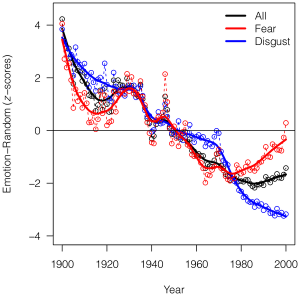I came across an App, while aimlessly surfing, it’s an algorithmic savings plan. I think that is the best way to describe it, or at least its a way to describe it. The point of Chip is that when you sign up you get a savings account, held by Barclays Bank PLC, and the app figures out how much money you could save (and not miss), and when. So every now and then Chip determines, via the magic of algorithms, an amount of money that you could save and not miss too much.
On the default savings rate it seems to be similar to the cost of a large latte and a chocolate bar. Chip then congratulates you your saving, you can back out if money is short. If you leave it to its own devices that sum of money disappears from your nominated current account to reappears in your new savings account.
Am I Using it?
Yes, I have signed up for the app. I thought that in general this isn’t a bad way to save. I have standing orders for saving a modest sum of money every month but I always thought I could do a little more. What Chip does is allow that to happen in a flexible way, no need to commit to a particular amount at the start of each month, and no need need to remember into get on internet banking to do it manually. Chip does it for you, and if you are a bit short one month you can stop the transfer. Great if your income is irregular and saving a fixed sum might be tricky.
Similarly, should you suddenly find you need money, you can easily get at the funds out of the savings account. This in my mind this makes this a sort of slush fund. Which you can dip into should need to, or are tempted to. I still think longer term savings are also a good idea. Putting a little away somewhere harder to get at, and also make sure you have a pension as soon as you can!
Saving Made Entertaining?
Chip makes saving about as entertaining as it probably could be. You get congratulatory memes when you save, and Chip is well chipper, and encourages you along your savings journey. The chipperness might drive some users slightly mad, but I think they got the balance about right. It does seem to work, or at least it does for me, after 103 days using the app I have saved slightly over £200. Which, although not a massive sum, is £200 more than I otherwise would have. I set a goal, rather arbitrarily, of £1500. Weirdly Chip seems to report that I am always about 95 weeks away from my goal… but whatever, I can see the amount saved go up and the amount left go down. Thats progress.
What About My Data?
In order to do all this Chip needs read-only access to your bank account. Now that is not data that should be handed over lightly. Sure your bank knows it, but your day to day transactions is very personal data. It provides a lot of information about how and where you spend you money, and thus who you are in a way. Chip is regulated by the ICO and they encrypt the data.
Chip has a data control licence – you’ll find us on the ICO register – and we always act in full compliance with the Data Protection Act. Your online banking login details are protected using 256-bit encryption and Chip does not store your data.
Chip FAQ
This was the part of the process that made me wince a little. However, if they are going to calculate a savings rate then they need (at least some of) this information. So, if you want in, this is the price you pay. I wanted to have a more detailed look at what and how they use my data. So I asked them a few questions, but they are yet to reply…
